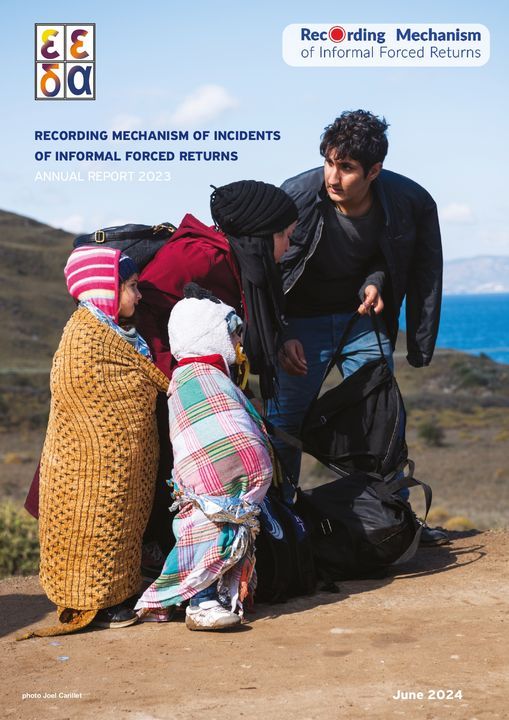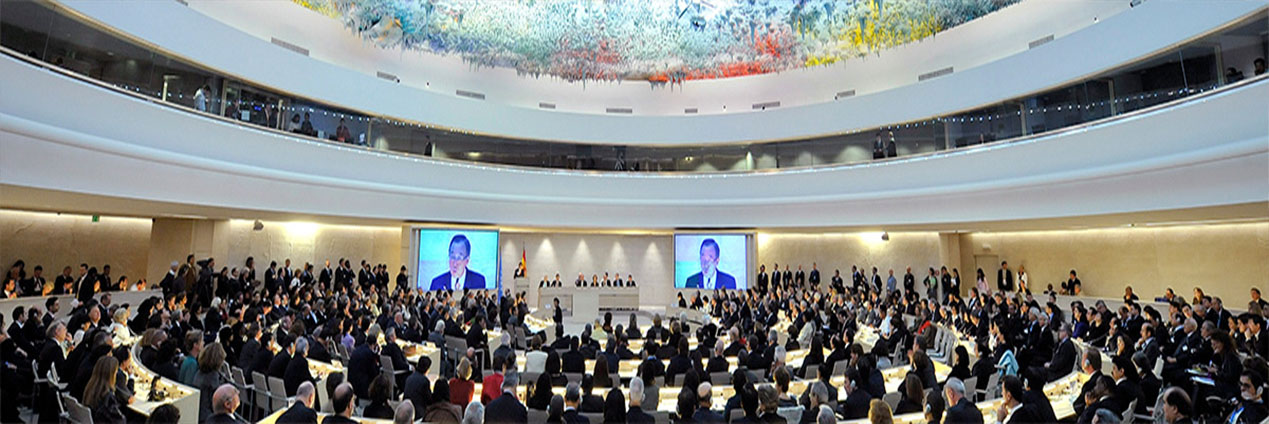Publication of the Annual Report 2023 - Recording Mechanism of Incidents of Informal Forced Returns

Recording Mechanism of Incidents of Informal Forced Returns
Press Release
Publication of the Annual Report 2023
The Monitoring Mechanism highlights the recurring serious indications of informal forced returns through sea and land borders, as well as other violations of the human rights of refugees and migrants.
Athens, 18 June 2024
The press release in pdf format
The Recording Mechanism of Incidents of Informal Forced Returns, established by the Greek National Commission for Human Rights (GNCHR),[1] in order to enhance the objectivity and credibility of reports on incidents of informal forced returns[2] from Greek territory, presented its Annual Report for 2023 during a press conference held on Tuesday, June 18, at 11:00 a.m. at the Athens Journalists' Union (ESIEA). The conference presented both quantitative data and qualitative findings derived from testimonies regarding the incidents recorded by the Mechanism over the past year, as well as details of selected cases recorded by civil society organizations that are members of the Recording Mechanism.
Between January and December 2023, the Recording Mechanism collected testimonies on 45 incidents of informal forced returns that, according to the allegations of the alleged victims, occurred between January 2022 and December 2023. Based on the testimonies, the total number of alleged victims in these incidents is estimated to be at least 1,438 individuals. Among them are at least 158 women, 190 children, and 41 people with specific needs, such as individuals with medical conditions, disabilities, the elderly, and others.
The data from the 2023 Annual Report reinforce the findings of the Recording Mechanism's previous 2022 Annual Report, concerning the systematic nature and modus operandi of informal forced return operations, which appear to share common characteristics.
The alleged victims continue to originate from countries where a significant percentage of individuals are recognized as eligible for international protection, according to national and European sources during the reporting period. Among the alleged victims are two (2) individuals who had been recognized as refugees in Greece and one (1) individual who had been registered by the Greek authorities as an asylum seeker.
In their testimonies, the alleged victims continue to describe acts linked to extremely serious violations of the principle of non-refoulement and the right to asylum, as defined in the 1951 Geneva Convention on the Status of Refugees, as well as violations of the prohibition of inhumane or degrading treatment, the right to personal freedom, the right to life, the right to asylum, and the prohibition of collective expulsions, as set out in the European Convention on Human Rights (ECHR) and the EU Charter of Fundamental Rights (CFR). These actions are also considered criminal offenses under Greek law. The aforementioned acts frequently target individuals who are visibly vulnerable, such as people with serious illnesses, disabilities, pregnant women, the elderly, and children.
The alleged victims reported experiencing physical violence, verbal abuse, threats to their lives and physical integrity, often involving the use of weapons, sexual harassment, degrading treatment, the confiscation of personal belongings and identification documents, informal detention in degrading conditions, family separations, and in some cases, the loss of human lives.
According to the testimonies recorded by the Recording Mechanism, both uniformed personnel and individuals in civilian clothes were involved as perpetrators. In some testimonies, it was reported that third-country nationals, speaking the languages of the alleged victims, participated in the removal from Greek territory, acting in collaboration with or under the orders of uniformed personnel.
The 2023 Annual Report contains detailed information on the characteristics of the alleged victims (countries of origin, ages, gender, vulnerabilities, legal status in Greece, etc.), the identity of the alleged perpetrators (uniformed and non-uniformed personnel, members of security forces, insignia, equipment, etc.), their methods, and the means of operation. It also includes detailed qualitative findings on the modus operandi of informal forced return incidents. An annex to the report includes anonymized excerpts from the testimonies of the alleged victims.
The report also provides detailed recommendations to the Greek authorities, including, among others, that they should investigate allegations of informal forced returns and other serious human rights violations at the borders independently and effectively, ensure that those responsible for any illegal actions are brought to justice, ensure that all state authorities strictly adhere to the principle of non-refoulement, and guarantee that all asylum seekers have access to asylum procedures and protection from pushbacks and all forms of informal forced returns.
You can access the newly published English version of the 2023 Annual Report of the Recording Mechanism here.
The Recording Mechanism involves civil society organizations that are active in the field, offering legal, medical, psychosocial, or other services to third-country nationals, all of which have legal status and representation in Greece. The UNHCR Representation in Greece provides the Recording Mechanism with technical support and expertise on refugee protection as a collaborating partner.
The reports recorded by the Recording Mechanism come from individuals who are not connected to one another, except in cases involving families or members of the same group. These individuals come into contact with civil society organizations to receive services and consent to having their testimony recorded by the Recording Mechanism.
The Recording Mechanism does not engage in any legal proceedings that may have been initiated either by the alleged victims and their legal representatives or by law enforcement authorities. Through identifying alleged victims and ensuring the security of their testimonies, the Recording Mechanism encourages the victims to seek recourse with the relevant authorities and the justice system.
[1] The Greek National Commission for Human Rights (GNCHR), as the National Human Rights Institution in Greece and the independent advisory body to the Greek State on issues of promotion and protection of human rights, in accordance with the United Nations Paris Principles and Law 4780/2021, has the institutional mission, among other things, of continuously monitoring issues related to human rights, informing the public, and promoting relevant research
[2] The term 'informal forced returns' includes both the alleged pushbacks of asylum seekers and refugees, as well as any other form of forced removal of third-country nationals from Greek territory, reportedly conducted in an irregular and summary manner, meaning without following the legal procedures required for such removals. According to the law, any process of forced return of third-country nationals must be based on an individual decision, be subject to judicial review with legal remedies, and be carried out with respect for fundamental human rights

